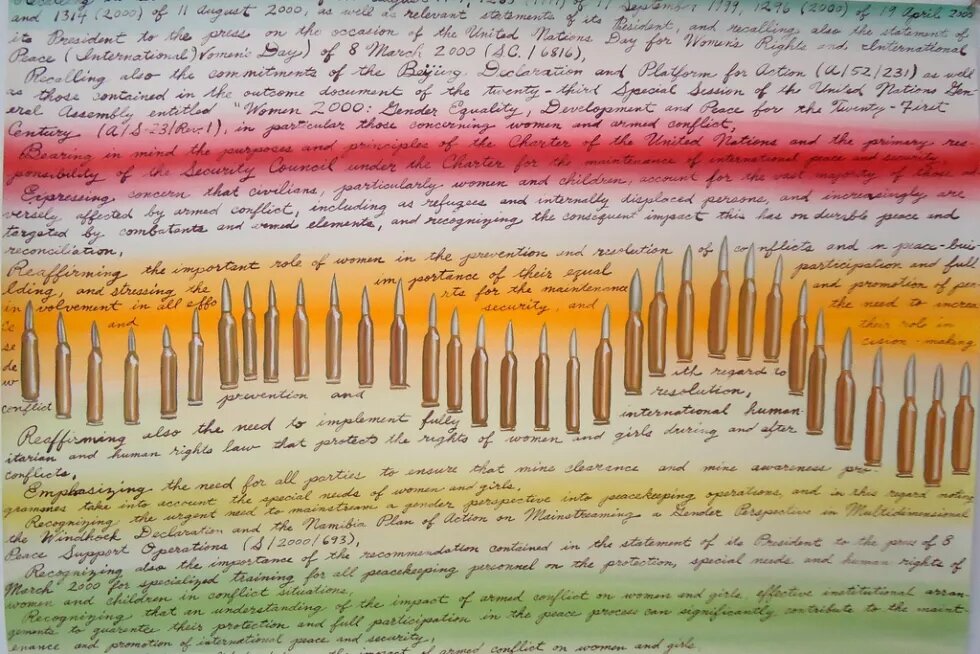
Conflict management has many different angles. As a small donor country, we need to focus on certain priorities where we can make a difference.
Additionally, support from civil society and the general public is vital in order to push the agenda (bottom-up) to a higher level. Civil society helps to build momentum to convince policymakers to take a stand.
For example, the fact that Belgium was a member of the Security Council in 2007-08 undoubtedly contributed to the initiation of the process to draft a national action plan. Then, healthy competition between the ministries helped to tackle the issue of gender mainstreaming within each ministry so that each department had something to show for this.
Pressure from a number of active MPs also serves as a catalyst as we still receive a large number of parliamentary questions on the implementation of the National Action Plan.
Secondly, Belgium’s current presidency of the Council of the European Union coincides with the 10th anniversary of Security Council resolution 1325. This has created a second wave of momentum to convince policymakers to take a stand. However, there are certain constraints which we have to take into account: Belgium is a small country, with only a small number of peace keepers, and even though we have achieved the 0.7% ODA goal in 2010, we remain a small donor at the global level. We have decided to use our presidency of the Council of the EU to organize three conferences at different levels: a high-level conference in Brussels; an expert conference in Geneva; and a ministerial lunch seminar in New York. This has allowed us to raise awareness and focus on political commitment at various levels. The fact that we have been able to use the momentum of the anniversary has helped to raise awareness among high-level decision makers. The result has been that a number of them now feel pressured to take decisions on the matter or seek guidance. We also hope these conferences will contribute to the establishment of a strong common EU position that can be upheld in the Security Council to bring about global change.
The EU, as a champion of human rights, needs to lead by example. Of course, as current holders of the EU presidency, we can only be credible if we ourselves make commitments. This in itself gives rise to a whole (new?) discussion on funding, gender balance in decision-making positions, training, etc. On a more strategic level, this requires long-term commitment from policymakers in order to effect sustainable change.
Data and facts are vital elements of the discussion. Skepticism unfortunately remains the norm: only by presenting figures and statistics that prove that women are truly not sufficiently involved in crisis management sectors can we convince policymakers to set targets and formalize a gradual change. An internal accountability mechanism, e.g. through parliament, is crucial to having interactive and continued support.
Women’s participation in the various aspects of crisis management creates a win-win situation. We need to continuously build on this in order to achieve peace and security for the entire population – and not only parts of it.